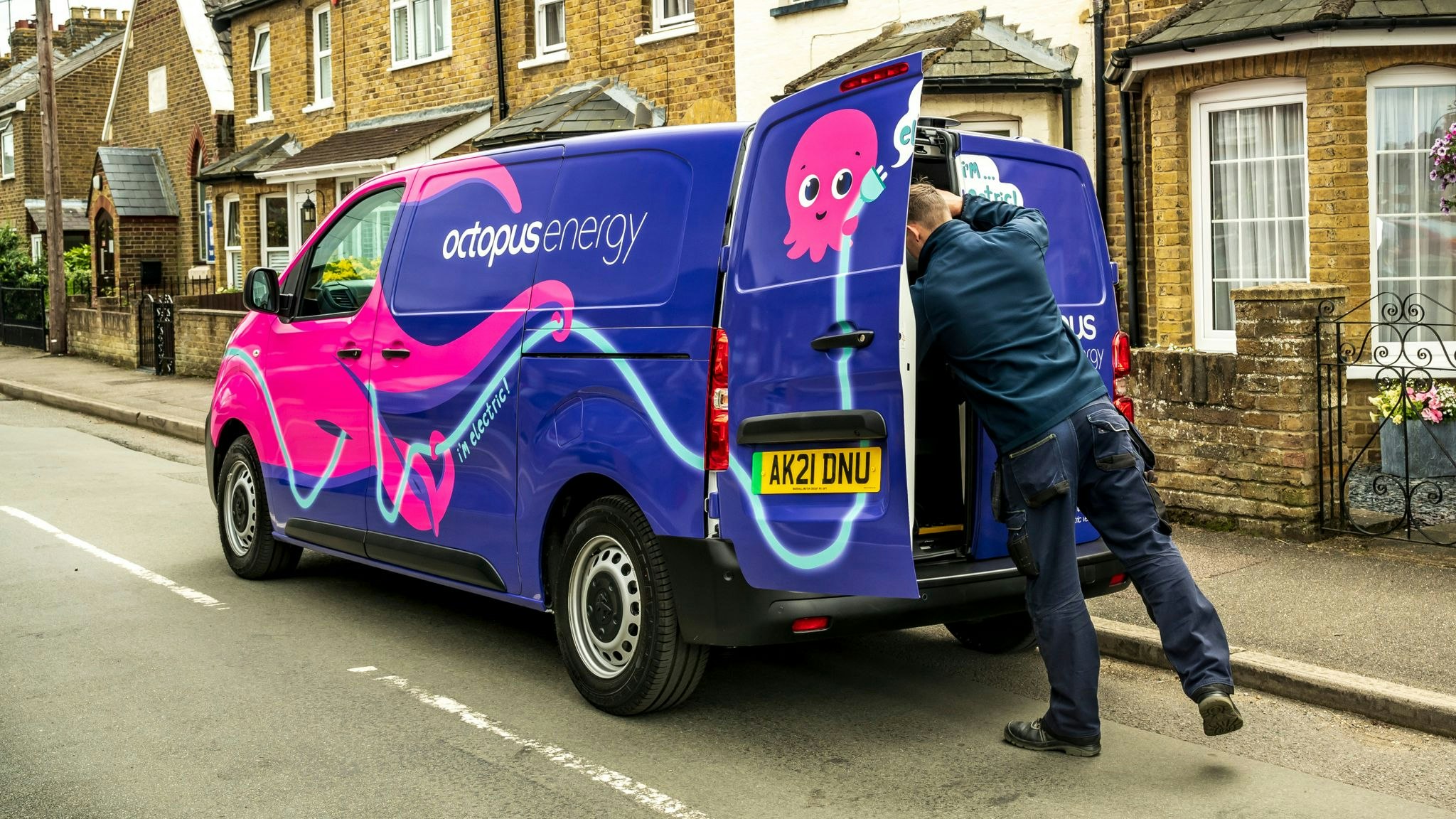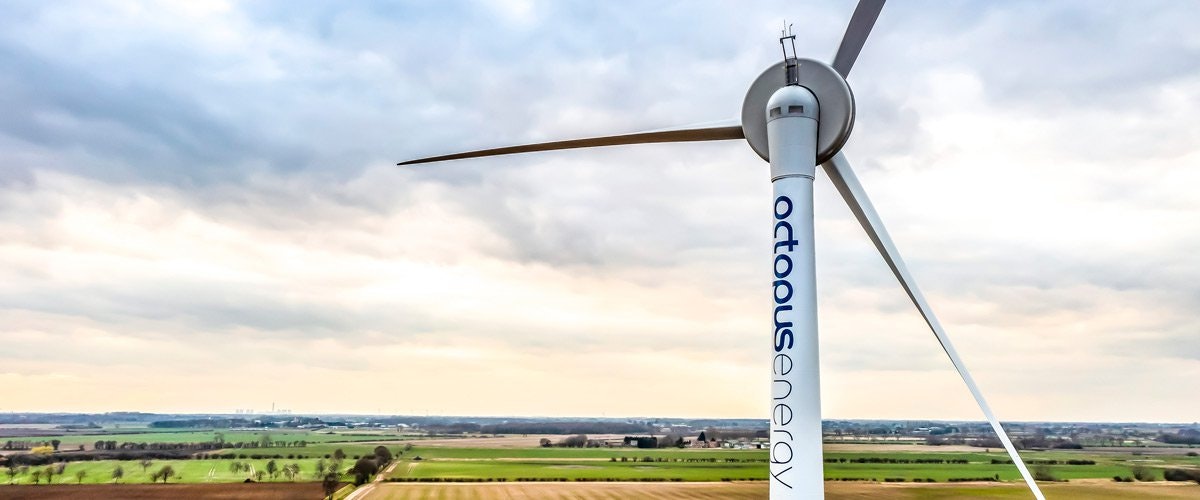Octopus Energy burst into the British energy market in 2015 and has quickly grown to become the country’s second largest energy supplier, joining the ranks with companies hundreds of years older than it.
The company also has retail customers in Germany, the USA, Japan, Spain, Italy, France and New Zealand, and is backed by investors like Al Gore’s Generation and Canadian pension fund CPP Investments.
In the past nine years, Octopus has done a lot to further the debate on green energy consumption and has a significant renewable energy generation portfolio. But, like many other energy suppliers, it still relies on REGO (“renewable energy generation of origin”) certificates for its electricity tariff: a system which has come in for criticism by others in the industry for not being as green as it first appears.
So how do the green credentials of Octopus’s consumer-facing operations stack up?
A 100% green electricity tariff?
Octopus provides its retail customers with both gas and electricity. Across its website, Octopus says the electricity is “100% green”. But unpack that stat and it’s a slightly more complex picture.
When a renewable energy generator — say a wind farm or solar park — produces energy, the UK’s energy authority, Ofgem, issues it with REGO (“renewable energy generation of origin”) certificates equivalent to the number of megawatt hours of electricity it has produced. The generator then sells those certificates to energy suppliers, to certify that the energy they’re buying is renewable.

Octopus sells about 25TWh of electricity to consumers in the UK per year. 20% of that comes from energy generated directly by the company’s renewables arm. The remaining 80% relies on REGOs to reach the threshold to be described as a “green tariff.”
The price of REGOs hit an all-time high in October last year, at £20 per megawatt hour. Octopus told Sifted it spends £250m a year on the certificates, at current prices.
“We absorb all of this extra cost ourselves — indeed, we spend more on this than we deliver in profit,” an Octopus spokesperson said. “Of course, this system is crazy — REGOs mean that renewables cost more — even though it’s often cheaper to generate,” the spokesperson added.
The great REGOs debate
REGOs are controversial, largely down to the fact that they can be sold to energy suppliers by third parties. Suppliers can, theoretically, buy fossil fuel-based electricity from the wholesale market, then purchase enough REGOs to match it, without actually buying any power from renewable generators; brokers sometimes buy REGOs from suppliers and then sell them on.
“[REGOs] are so tradable and fungible that there’s a concern that they don’t really necessarily link to the electrons that people are supplying,” says Euan McVicar, climate advisor at law firm Pinsent Masons. “The REGO could have changed hands many times before [an energy supplier] gets to it.”
A further problem is that REGOs attached to old renewable energy projects are sometimes purchased afresh on the market, having changed hands numerous times.
“The consumer demand for green energy is really prompted by the idea that consumers, in buying the energy, want to think that they’re helping new renewable energy projects,” McVicar says. “The REGOs don’t necessarily come from new projects.”
Alan Chang, founder of Fuse Energy, which builds solar parks in the UK, agrees that REGOs give customers a false impression.
“Renewables are intermittent, which means that by definition it’s not possible to be 100% renewable,” he says. “Anyone claiming to be 100% renewable is greenwashing to some extent and the REGOs regime facilitates that.”
Companies move away from REGOs
The use of REGOs is widespread but some companies, including Ovo Energy and Good Energy, have moved away from relying on them.
Ovo stopped using REGOs in April last year, after conducting research into the system.
“We found that these REGO certificates really weren’t driving the new renewable energy generation that we felt they should be,” says Susie Leppard, head of renewable energy at Ovo.
“We found that when consumers buy green tariffs, the majority of consumers believe that they are getting different electricity into their home, which isn’t the case, we’re all connected to the same grid.”
Ovo makes direct “power purchase agreements” (PPAs) with renewable energy generators to cover its green tariffs. When you make PPAs, you still receive REGOs, but Ovo has moved away from using certificates bought from a third party.
Fellow UK energy supplier Good Energy also covers its green tariffs with power purchase agreements instead of REGOs. “We’ve been lobbying and doing as much campaigning as possible on the issue of REGOs,” says Kit Dixon, head of policy and regulation at the company.
It’s important to note that Octopus has significantly more customers than both Ovo and Good Energy, so would need to make a much larger number of power purchase agreements with renewable energy generators to match its green tariffs.
“REGOs are far from perfect but are currently the only way to certify renewable energy in the UK,” the Octopus spokesperson told Sifted.
Octopus builds renewable generation
Although Octopus does rely on REGOs, its green credentials are boosted by the amount of money the company puts into renewable energy generation — significantly more than the majority of energy firms.
“We invest billions, not only in the infrastructure to generate renewable energy, but in the technology to use it more effectively — with millions of customers already benefiting from cheaper and greener power,” Octopus told Sifted.
“The renewables portfolio we manage in the UK is worth almost £5bn,” Octopus’s spokesperson said. Octopus Energy Generation, part of the wider Octopus group, manages 230 large-scale green energy projects across Europe, including wind farms and solar parks.

“From our perspective, the more renewables the better,” says the spokesperson, highlighting the UK’s decision last week to revoke the ban on new offshore wind projects as a positive one. “We’ve invested heavily in a renewable future for years.”
The company’s also investing in innovative energy technologies — such as an interconnector running from Morocco to the UK to bring solar power to the country and a promise to invest £3bn in green hydrogen in the UK. On the domestic side, Octopus offers heat pumps to customers.
So, while Octopus relies on the widespread but imperfect REGOs regime, the money it’s ploughing into renewables will increasingly bring its reliance on them down — and it’s likely to do so much faster than many of the older incumbent energy companies.
Read the orginal article: https://sifted.eu/articles/how-green-is-octopus-energy/


